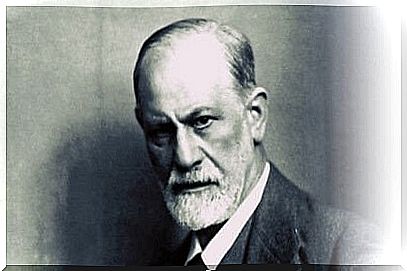Freud On Developing A Strong Self-esteem

Sigmund Freud believed that if you have strong self-esteem (ego), you are able to understand your own needs and also intuitively understand the boundaries that society sets for us. If you have a strong self-esteem, you can move freely through life. You will have no problems with your internal inhibitions and you will be satisfied and complete in your daily life.
We should start by saying that many of the basic psychoanalytic ideas are no longer valid. Concepts such as penis envy and feminine hysteria are outdated. Regardless of this, psychoanalysts have managed to remain relevant by embracing new ideas and adapting to modern times.
At the time, Freud’s ideas were considered new and risky. One of his nicknames was the quack from Vienna because people thought his techniques were too crazy. Regardless of this, the fire he lit then still burns, even though the heat from it has diminished. Studies like this from Linköping University show that the biggest problem in psychoanalysis nowadays is how long the treatment takes.
This type of therapy requires four sessions a week for as many weeks or years as the patient needs. Nowadays, people find it difficult to make that kind of commitment. Today’s life is demanding and we are used to immediate satisfaction. Adapting to such a long treatment is not always possible. This is why modern therapists rely much more on faster therapies.
Sigmund Freud would be completely against it. He believed that one of the key goals of all psychoanalysts was to work with the patient’s self-esteem (ego). The psychoanalyst must turn the sick person’s mental strength to that of a healthy individual and heal all conflicts that stand in the way of the person’s freedom and well-being.

One of Freud’s most interesting works is definitely his book An Outline of Psychoanalysis. Interestingly, this is actually an unfinished book. When he wrote the book, he was in exile from World War II. He was already relatively old and his health did not allow him to complete it.
The book was a compilation of what he had already written about. He also used it to dive deeper into his most relevant theories. Some examples of these are the mental apparatus, dream interpretation and the psychoanalytic technique. The most important part of this book is the more detailed definitions of the concepts id, ego and superego.
For the first time, the acclaimed Vienna – based psychoanalyst delved into the idea of a strong self – esteem and the human need to strengthen his self – esteem in mental architecture. Freud also said that developing a healthy self-esteem is complicated. Freud believed that this is why many of us are not realized, happy or free.
Reasons why you have not developed a strong self-esteem
There are two opposing forces that coexist within you. On the one hand, there is ID with its basic elementary needs. On the other hand, you have the superego that reflects the internalization of society’s strict rules. Superegot limits your desires, aspirations and dreams.
- According to Freud, id always needs something and always feels unsatisfied in some way. Id is nervous, restless and does not understand the past or future.
- Superegot, on the other hand, is a complex entity that makes us hold things back. It limits our freedom, controls our behavior and shatters our dreams. Superegot is a social and cultural entity that creates us and oppresses id.
- The ego, the self-esteem, is in the middle of all this. You can always fulfill your needs with the commitments, dreams and desires that fit into the framework of society. This may be one of the reasons why we often do not want to develop a strong self-esteem. In addition, we can sometimes feel fragmented and lost because of it.

In the book The Outline of Psychoanalysis, Freud explains that there are a number of factors that determine whether or not you can develop a strong self-esteem. He suggested the following reasons:
- Excessive dependence on your parents: Freud believed that children take longer and longer to mature and become independent people. They develop determination and initiative much later in life.
- To have a childhood or adolescence full of rules, punishment and strict upbringing.
- To grow up without close and affective role models who facilitate optimal development.
As you can see, Freud believed that childhood is a very important time in a person’s life. The truly valuable part of his posthumous work is the advice he gives to help us develop a strong self-esteem:

How to build this self-esteem
- To be able to have a strong self-esteem (ego), do not fight against your ID or your superego.
- The point is to keep the balance between these forces. You should try to achieve harmony between your needs and your responsibilities.
- For these two energies to agree, you must illuminate everything you may have repressed or hidden within you. As you work on this aspect of yourself, your hidden needs, motivations, and fears will emerge. You should also deal with your childhood fears, traumas and memories that you have not yet dealt with.
- Freud also talks about how important it is to work with your independence. Once your different dimensions are all here for the world to see, you need to deal with them in a mature way.
- It is possible that you think you have never received what you deserve. This hidden anxiety will follow you wherever you go. One way to have a strong self-esteem is to free yourself from that need. After all, need leads to submission and disease.
In summary, many of Freud’s ideas are still relevant today and they invite us to reflect on some important concepts. Strengthening your self-esteem is something you have to work on every day. Keep working on yourself. It’s definitely worth it!









